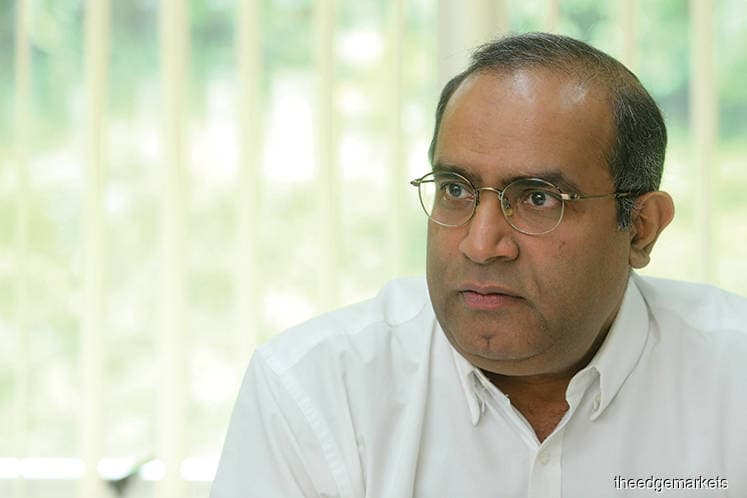
KUALA LUMPUR (Aug 17): In the government’s review of proposed projects, the RM81 billion East Coast Rail Link (ECRL) is a mega project requiring “extreme care,” according to academician and political economist Prof Dr Edmund Terence Gomez, but many other smaller scale Chinese investments with potential for economic impact must not be overlooked.
Gomez, who is University of Malaya’s economics and administration faculty professor, said revisiting smaller projects within the manufacturing sector is equally important to remove political interference and to realise economic spinoffs, if any, moving forward.
“It is not all bad, but it is how we deal with the situation,” he said.
Gomez urged the Pakatan Harapan-led government to now play the role of governing, instead of opposing, by looking into Chinese investments to identify "truly productive" projects and not go by political whims and fancies.
Gomez was speaking to reporters on the sidelines of the Malaysia-Business Smart Silk Road Forum today, where he unveiled a research study entitled A New Normal in Malaysia-China Economic Relationship, alongside senior director of Centre of Public Policy Studies (CPPS), Lau Zheng Zhou.
The study, which will publish its findings in about a month, zooms into 93 projects in Malaysia involving Chinese participation. Of this, some 63% are within the construction sector, 27% in manufacturing, 9% in services, and 1% in agriculture. Most projects under coverage are partnerships between private Malaysian firms and Chinese state-owned enterprises (SOEs).
CPPS’ Lau believes attention ought now to be given to the less mature manufacturing sectors such as train manufacturing and glass production, which would benefit from leveraging on Chinese technology and know-hows.
However, he observed the need to ensure locals receive more technical vocational and training (TVET), before they can fully absorb the technology transfer and enable Malaysia to serve the broader Asean region.
Prime Minister Tun Dr Mahathir Mohamad is embarking on a five-day official visit to China from today, at the invitation of Chinese Premier Li Keqiang.
Malaysia's Foreign Affairs Ministry said Dr Mahathir and Li would witness the signing of three memoranda of understanding (MoUs) in the areas of agriculture and agricommodity.
Gomez said many are hopeful that the visit will lead to productive investments in key sectors of renewable energy, technology, and agriculture, which can help unlock long term gains, including employment opportunities, technological transfer, and generating economic growth.
"Based on our preliminary findings, there is a diverse range of investments from China into this country; it is not all just construction and infrastructure. I hope that Mahathir will continue to build on those.
“If we do it properly with China and remove politics out of it — which should be easy, now that we have a new government — we can focus on truly productive investments.”
He also hopes there will be more involvement of private firms, especially small and medium enterprises (SMEs), besides SOEs and government-linked companies.
"The government should focus on linking SMEs with multinational companies from China, as they make up about 98% of the Malaysian corporate sector. These are linkages that can emerge from investment flows from China into the country, as SMEs in Malaysia can gain through this access into the larger Chinese market.”
On the controversial ECRL project, Gomez observed: “There is something fundamentally wrong with this ECRL project, which we have to look into carefully. Similar projects in other parts of the world didn’t cost that much.
“There was too much political interference, and not enough transparency or accountability in the whole manner in which the project was developed. That project must be handled with extreme care.”